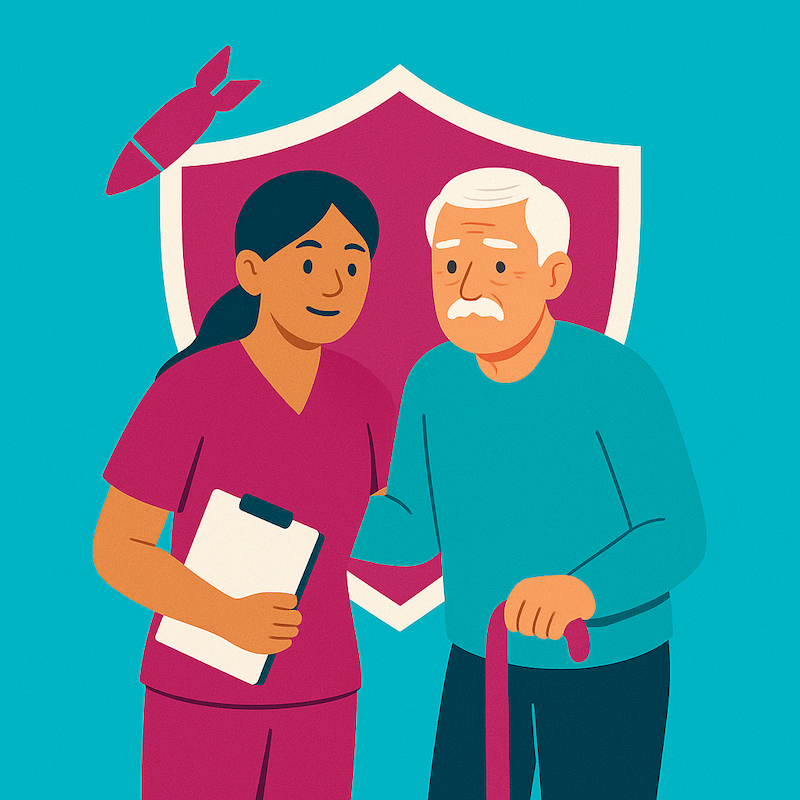Effective Strategies for Managing Medications in Elderly Patients
iSavta | 28.01.2024

As individuals age, they often find themselves managing multiple medications to address various health conditions. However, the task of medication management can be challenging, especially for elderly patients who may have cognitive impairments or other age-related issues. It is crucial to ensure that medications are taken correctly to maximize their benefits and minimize potential risks. In this article, we will explore effective strategies to help elderly patients manage their medications efficiently and safely.
Maintain an Updated Medication List:
A comprehensive and up-to-date medication list is the foundation of effective medication management. Elderly patients should maintain a detailed record of all the medications they take, including prescription drugs, over-the-counter medications, and any supplements. The list should include the medication name, dosage, frequency, and the purpose for which each medication is prescribed. This list should be shared with healthcare providers during appointments or in case of emergencies.
Simplify Medication Regimens:
Elderly patients often have complex medication regimens, which can be confusing and increase the risk of errors. Streamlining medication schedules by aligning dosing times and reducing the number of daily doses can significantly improve adherence. Whenever possible, healthcare providers should aim to prescribe long-acting medications or combination drugs to minimize pill burden and simplify the regimen.
Utilize Medication Organizers:
Medication organizers, such as pillboxes or blister packs, can help elderly patients keep track of their medications and ensure they are taken at the right time. These organizers can be filled weekly or monthly, making it easier for patients to remember which medications to take and when. The use of color-coded compartments or alarms on smartphones can further enhance medication adherence.
Involve Caregivers and Family Members:
Elderly patients often rely on the support of caregivers or family members for medication management. It is essential to engage these individuals in the process and provide them with the necessary information and training. Caregivers can help organize medications, set reminders, and assist with administration, reducing the chances of missed doses or confusion.
Educate Patients on Medication Use:
Clear communication between healthcare providers and elderly patients is vital to ensure that patients understand their medications and how to take them correctly. Healthcare professionals should take the time to explain the purpose of each medication, potential side effects, and any special instructions. Patient education materials, written in simple language, can serve as valuable resources to reinforce this information.
Regular Medication Reviews:
Medication regimens should be periodically reviewed by healthcare providers to assess their appropriateness and identify any potential interactions or adverse effects. Elderly patients often see multiple healthcare professionals, and it is crucial to ensure that all medications are reconciled and appropriately prescribed. Medication reviews also provide an opportunity to identify medications that may no longer be necessary, reducing the risk of polypharmacy.
Consult a Pharmacist:
Pharmacists are medication experts who can play a pivotal role in medication management for elderly patients. They can provide medication counseling, review prescriptions for accuracy, identify potential drug interactions, and suggest appropriate medication alternatives. Regular visits to the pharmacy for medication refills offer an excellent opportunity to consult with a pharmacist and address any concerns or questions.
Use Technology to Assist:
In the digital age, technology can be a valuable tool in medication management for elderly patients. Smartphone apps, medication reminder devices, and electronic pill dispensers can help track medication schedules, provide reminders, and alert caregivers or healthcare providers in case of missed doses. These technological aids can enhance medication adherence and improve overall safety.
Conclusion:
Effectively managing medications is crucial for the health and well-being of elderly patients. By maintaining an updated medication list, simplifying medication regimens, utilizing organizers, involving caregivers, providing patient education, conducting regular medication reviews, consulting with pharmacists, and using technology, elderly patients can better navigate their medication regimens. These strategies promote adherence, minimize the risk of errors, and ultimately enhance the quality of life for older individuals. It is essential to establish a collaborative approach between healthcare providers, caregivers, and patients to ensure the effective management of medications in the elderly population.











